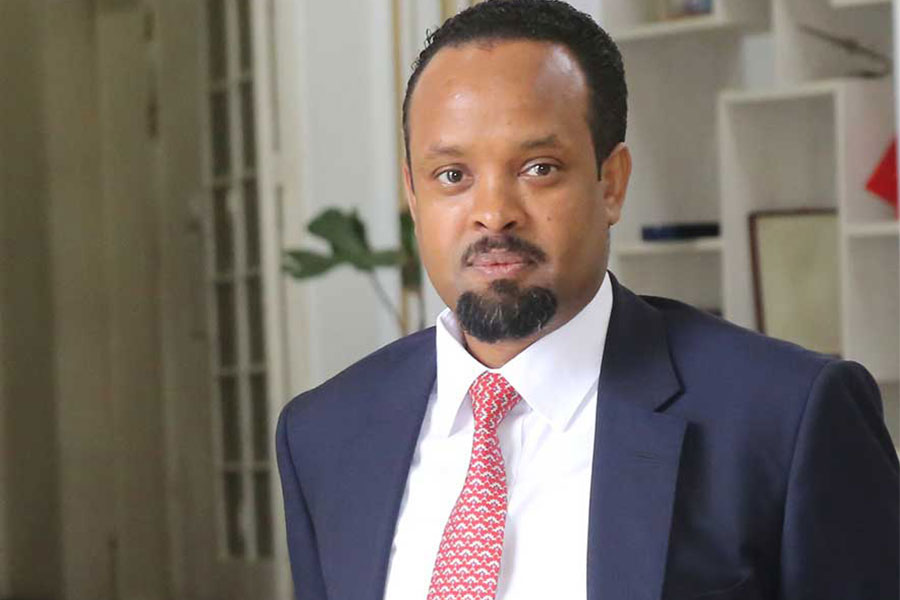
Editorial | Sep 13,2025
Jul 28 , 2024
By HIWOT HABTNEH ( FORTUNE STAFF WRITER )
Ethiopia is poised to become a key player in Africa’s green economy, with a new report forecasting the creation of up to 3.3 million direct green jobs across the continent by 2030. The report, "Forecasting Green Jobs in Africa (2024)," highlights Ethiopia’s potential in hydroelectric, solar energy, and climate-smart agriculture sectors, positioning it as one of the promising countries.
Produced by FSD Africa and experts, the report underscores Africa’s overall potential to generate between 1.5 to 3.3 million direct green jobs across key sectors such as energy, agriculture, and manufacturing. This potential is attributed to the continent’s abundant natural resources, renewable energy prospects, and the world’s fastest-growing workforce, which can allow Africa to leapfrog directly to renewable energy technologies, bypassing traditional carbon-intensive infrastructure.
Ethiopia, along with four other countries— the Democratic Republic of Congo, Kenya, Nigeria, and South Africa— is projected to contribute up to 720,000 jobs by 2030. Large-scale projects, such as the Grand Ethiopian Renaissance Dam (GERD) have made hydro projects the leading sector with up to 33,000 jobs projected. Ethiopia’s substantial hydroelectric potential, coupled with emerging opportunities in solar energy and climate-smart agriculture, solidifies its role in Africa's green economy.
The report lists sectors such as solar energy, power transmission, climate-smart agriculture, aquaculture, and waste management as priorities. Energy and power are expected to generate up to two million jobs, primarily driven by solar energy projects, which alone could create up to 1.7 million jobs. Agriculture and nature are forecasted to create up to 700,000 jobs, with contributions from climate-smart agricultural technologies and aquaculture.
Achieving this green job potential requires a concerted effort in policy support, infrastructure development, and substantial financial investments estimated at over 100 billion dollars annually.
Generating around 5,200MW of energy from hydroelectric sources, Ethiopia finds itself contemplating a complex yet crucial aspect: financing the green economy. A new bill aimed at establishing a special fund for green legacy initiatives and land restoration was presented to the Parliament last month. The bill, co-authored by the Ministry of Finance and the Ethiopian Forestry Development, proposes creating a fund, envisioned to constitute up to one percent of the federal budget, to provide sustainable domestic financing for these critical projects.
"Supportive policies and targeted investments in high-potential value chains are crucial," he told Fortune.
Gossaye Mengiste, chief consultant at the Ministry of Water & Energy, highlighted the focus on solar, wind, and geothermal energy sectors under the green legacy policy. He said the Ministry plans to leverage hydro resources, and modernise and scale up projects to meet energy demands.
According to Gossaye, attracting investment by creating a conducive environment is equally important. He believes drafting detailed policy, strengthening public-private partnerships, and measures to alleviate the forex issue, is considered by the federal government.
The report serves as a foundational step towards a comprehensive understanding of labour demand in Africa's green sectors, aiming to guide educators, policymakers, and investors. By focusing on immediate job creation and skill development, Africa can lay the groundwork for a sustainable and prosperous future, ultimately leading to an estimated 100 million new and improved jobs by 2050.
Artificial Intelligence (AI) is poised to be a game-changer for hydropower in its ability to optimise energy storage integration. Experts believe it enhances grid stability, ensures a consistent power supply, and boosts the value of hydropower generation. However, realising the full potential of AI in hydropower is not without its challenges. High-quality data is essential for AI algorithms to produce accurate and reliable results. Ensuring data security and privacy is also paramount.
Equally important is the development of human capital. A skilled green workforce is essential for both driving and benefiting from this growth, yet talent demand and supply dynamics have been largely overlooked until now.
Tigabu Atalo, energy expert, recommends enhancing formal education programs, vocational training curricula, and on-the-job skills development to meet the demand for specialised and advanced green jobs. He calls for fostering cross-sector collaboration between governments, private sectors, and educational institutions to create a supportive environment.
PUBLISHED ON
Jul 28,2024 [ VOL
25 , NO
1265]

Editorial | Sep 13,2025

Fortune News | Jan 25,2020

Fortune News | Aug 13,2022

Fortune News | Jun 15,2019

Commentaries | Jan 03,2021

Editorial | Aug 08,2020

Sunday with Eden | Jan 18,2019

Viewpoints | Jun 21,2025

My Opinion | Apr 29,2023

View From Arada | Jun 22,2019

Dec 22 , 2024 . By TIZITA SHEWAFERAW
Charged with transforming colossal state-owned enterprises into modern and competitiv...

Aug 18 , 2024 . By AKSAH ITALO
Although predictable Yonas Zerihun's job in the ride-hailing service is not immune to...

Jul 28 , 2024 . By TIZITA SHEWAFERAW
Unhabitual, perhaps too many, Samuel Gebreyohannes, 38, used to occasionally enjoy a couple of beers at breakfast. However, he recently swit...

Jul 13 , 2024 . By AKSAH ITALO
Investors who rely on tractors, trucks, and field vehicles for commuting, transporting commodities, and f...

Oct 18 , 2025
The political establishment, notably the ruling party and its top brass, has become p...

Oct 11 , 2025
Ladislas Farago, a roving Associated Press (AP) correspondent, arrived in Ethiopia in...

Oct 4 , 2025
Eyob Tekalegn (PhD) had been in the Governor's chair for only weeks when, on Septembe...

Sep 27 , 2025
Four years into an experiment with “shock therapy” in education, the national moo...